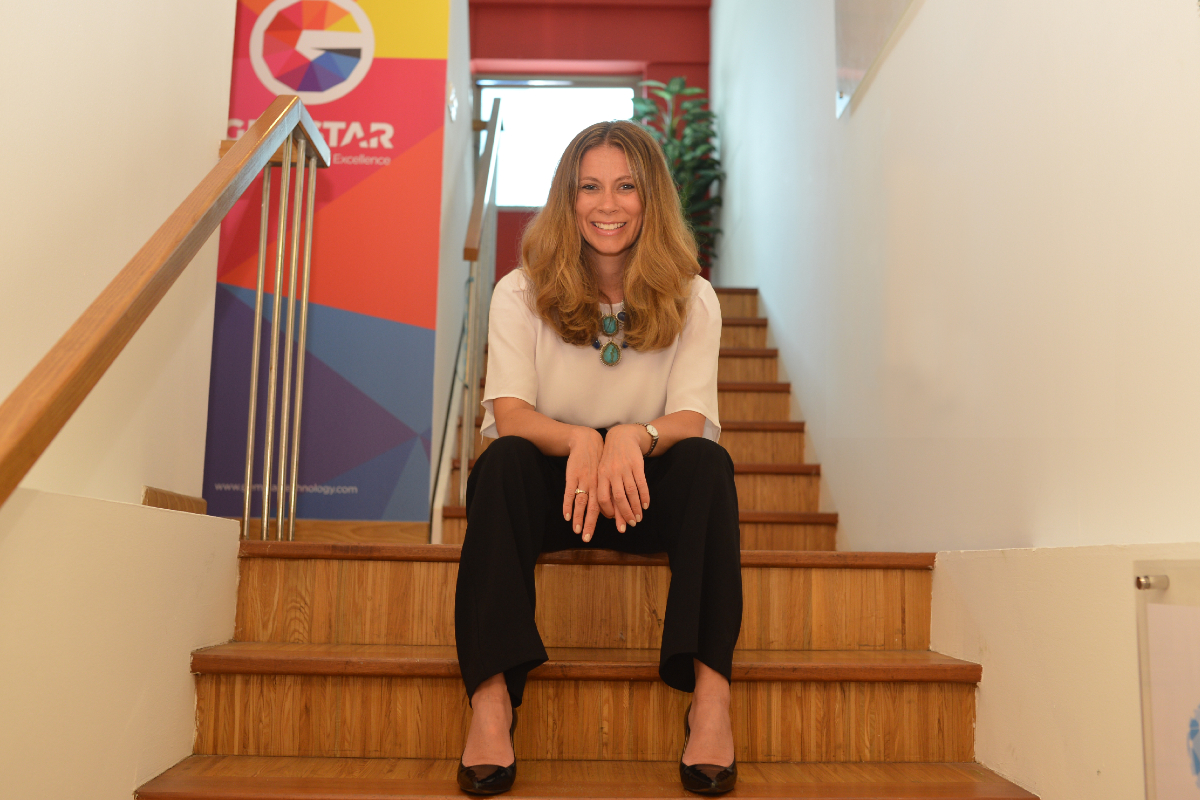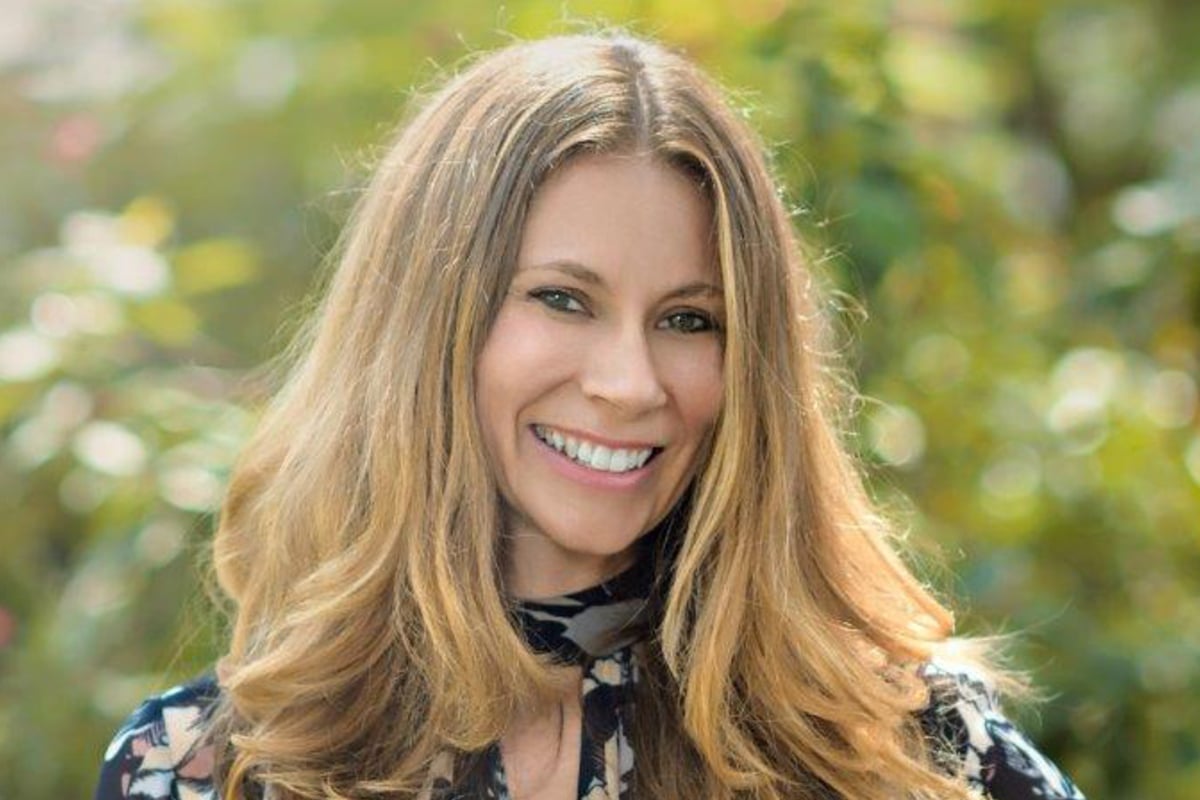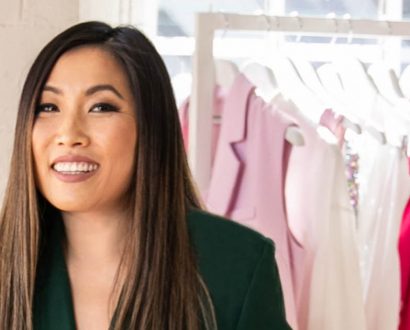Today she’s a hugely successful self-made entrepreneur and the founder of two multi-award-winning businesses making waves across the globe. But Gemma Manning’s journey to the top was anything but easy, as she explains in her new autobiography About This Girl.
As she navigated her way through the male-dominated business world, Gemma found herself increasingly frustrated by the undeniable inequity between the genders, especially in corporate spheres. Determined to change things and be the master of her own destiny, she fought back against the patriarchy and achieved extraordinary success in the face of adversity.
A fearless trailblazer with passion in spades, Gemma’s tale is one of sheer grit and resilience. From finding herself a single mother of two young girls while spearheading a burgeoning business, to uprooting her life in Australia and risking it all to expand the company into Asia, she doesn’t shy away from detailing the invaluable lessons she learned, the failures she picked herself up from, and all of the messy bits in between.
Here, she shares her incredible and important story with The CEO Magazine, offering advice to rouse the next generation of businesswomen.
You have a phenomenal story, and the book details everything from personal hardships to life lessons and your incredible professional success. Why do you think it’s an important story to tell?
I attended an all-girls’ school, where we were told that if you work hard, if you earn experience and develop skills, then the world is your oyster. I quickly discovered though that in the world of business, that’s just not the case for women. About This Girl looks at the glass ceilings and obstacles ever-present in the business and corporate worlds. People are often very quick to say, “Well, that’s just business.” But that’s not OK. Why do we have to accept that that is just how things are? It’s an excuse that means ethics and values can be put aside.
Things have to change – there needs to be more of a level playing field. A lot of the reason for writing the book has also been feeling a sense of responsibility for sharing my story to hopefully inspire more women and spark conversations. We don’t have enough females running their own businesses, and we don’t have enough female entrepreneurs telling their stories. It was scary sharing such intimate details about myself in the book, but over time I’ve realised that a lot of people are interested in the human side and the story behind the entrepreneur – wondering what drives you, what motivates you, what has shaped you.
You started your first business; PR and marketing firm Manning & Co in 2008, followed by Gemstar, an Asia accelerator and educator in 2013. What were the early days after starting the companies like? Were there any points when you thought they might not succeed?
There were times when I’d wonder why I hadn’t chosen an easier path, or one that’s not trying to fight against the grain, purely because of my gender. It took a long time for me to classify myself as a real entrepreneur; it was probably only really when I took the risk to come to Asia and put it all on the line. The possibility of failing was truly terrifying.
There was also a lot of juggling between being a single mother and running the businesses, and trying to hold everything together. I don’t feel like I’m by any means towards the end of the journey, or have “made it”, but there are moments where I feel like my success is a message to the naysayers or people who may have underestimated me. But really, those are the people that lit that fire in my belly along the way.
Even now, I’m constantly mistaken for someone else, rather than the person in charge. I’ve had people walk right past me to shake the hand of a male colleague who they assumed was the CEO. So at times you can’t help but think, “Is this abnormal? Is this something that cannot be done?”
You’ve won a slew of awards, including Entrepreneur of the Year in 2018 and Game Changer of the Year in 2020, as well as being shortlisted for the Telstra Women’s Business Awards in 2017. You’re also launching the Light Years social impact initiative this year to help disadvantaged and vulnerable women. What achievement are you most proud of?
I’m very proud of where we’re at with Gemstar and in particular, the YoungGems program. We were the first to offer this kind of program to the deaf and hard of hearing community in Australia, and we’ve also taken it into the migrant community.
We’ve truly seen the power of transformation through the program. It’s about inspiring our YoungGems, as well as setting them up to follow their passion and purpose, giving them confidence and doing all the things that I feel would have helped me on the way, especially for the disadvantaged who otherwise wouldn’t get that step up.
I’ve been building Light Years in the background for some time now as well, and I’m so excited about what we’re going to do in that space. It’s kind of my way of giving back to women. I’ve got big aspirations for that side of the business. Of course it’s incredibly satisfying when we’ve been acknowledged with awards and accolades, but really, it’s hearing the personal testimonials from people we’ve inspired or had an impact on that mean the most.

You were also one of 28 entrepreneurs selected to meet with Sir Richard Branson on Necker Island in 2016 for a collective brainstorming session. What was that like?
I was very nervous and starstruck when I first saw Richard there. It was that absolute pinch-me moment, and I couldn’t help but think he was just so almighty and in a completely different league to me. But as soon as I spoke to him it became so clear that he is just an honest, lovely, normal person. He’s experienced the highs and lows, and is a human just like us.
I made some incredible friends for life that week, and it was a truly humbling experience. It can feel very lonely when you’re building your own business, and you often wonder who you can turn to who kind of understands what you’re going through. Sometimes, the more you extend yourself and get out of your comfort zone, the lonelier it can get. So it’s wonderful to find comfort from other people who are in the same position.
What have been the biggest challenges you’ve faced in your professional career, especially the obstacles that you’ve faced as a woman in the corporate world?
Being a woman in business, there were a lot of people wanting to tear me down – it’s cutthroat. But I guess that also meant that the stakes were a lot higher. There was a lot that I just didn’t anticipate or expect. So sometimes it was about just getting through the disappointments and rising above them, because a lot of times it would have been easier to just throw in the towel.
The parts you usually don’t hear a lot of, about people starting their own businesses, are things like having to mortgage your own home to raise funds. The side that people don’t see is you sitting in the shower crying and thinking, “Oh my God, what if I fail?” after you’ve put so much into it, and there are all these people counting on you. We don’t talk about those moments enough; we just see the end result.
You have two daughters, Charlotte, 14, and Amelie, 11. What roles have they played in your professional journey?
It was actually the birth of my daughter Charlotte, and subsequently being booted out of my corporate job that was the catalyst for me to start my own business. It really took me such a long time to recover from the injustice of not being seen as capable anymore simply because I had a baby. When my daughters came into the world, it made me even more passionate to fight the fight and follow my dreams and purpose and vision for my companies. They’ve grown up around business, and to be honest, they probably know what’s involved better than some adults. Mummy running her businesses is just normal for them, and I hope that I’ve proved to them that anything is possible.
What would be your advice for women looking to climb the corporate ladders and smash the glass ceilings all the way to the top?
I think we just have to go for it. We have to. I hope that their journeys aren’t as challenging as my own has been, but at the same time, I’ve never wanted things to be easier; it’s just about making it fair and equitable.
There are no shortcuts, you’ve got to do the work, and put the effort in. I think a lot of people want quick fixes, and these things truly take time. People will try to throw you off course, so you need a strong vision, as well as the work ethic and ability to execute. As a female, for a long time it’s been assumed that in order to stand out or be respected in business you need to be a bit more aggressive.
But out of all of this, I’ve become OK with just being myself, which means that I’m a compassionate, kind, ethical leader. If I can keep doing that, hopefully that will create positive change, and show other women and businesses that there is absolutely a place for those traits in business. Being comfortable in your own skin and being authentic is key.
The biggest thing is to be yourself – that’s my real secret weapon.
About This Girl by Gemma Manning is available for pre-release.







